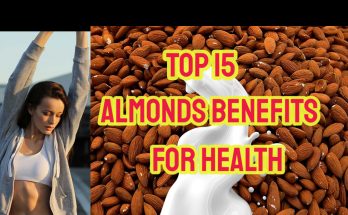Updated: March 31, 2024
We’ve all heard the word cardiovascular, but what does it actually mean? Cardiovascular disease is another term for heart disease. “Cardio” means heart, and “vascular” refers to the blood vessels, also known as your circulatory system. Cardiovascular disease (CVD) and coronary heart disease (CHD) are both used to describe health issues with the heart and particularly the arteries in the body, which supply vital oxygen to keep tissues alive and healthy.
Cardiovascular disease can sometimes occur due to genetics, infection or age, but in many cases, it is the result of certain lifestyle choices, sometimes made when we were younger, which catch up with us and lead to heart health issues.
For example, smoking tobacco, being overweight, eating too many fatty foods and too much dietary cholesterol can all put wear and tear on our bodies and lead to serious heart health issues. So too can chronic inflammation, that is, persistent irritation in the body, especially the blood vessels, which can be due to our diet and to our stress levels.
People who adopt an anti-inflammatory diet will often find it helps their heart health as well. If they also take steps to lower their stress, they can often reduce their risk of a heart attack or stroke.
Other modifiable risk factors include:
+Exercising more
Aerobics refers to working out your heart by elevating its rate enough to work the muscle to keep it healthy. Aim for 250 minutes per week of brisk walking, or try swimming, dancing or low impact aerobics. Add strength training such as yoga and light weights and you will develop lean muscle, which will boost your metabolism. All exercise burns calories.
+Getting your weight under control
Exercising more will help you get your weight under control. So too will making smart food choices. Count calories to make sure you are not overeating. Counting carbs can also help with rapid weight loss, though it is a hard eating lifestyle to maintain long-term.
+Dealing with high blood pressure
Hypertension is the clinical term for high blood pressure. What is high blood pressure (HBP) exactly, and why is it so dangerous for your heart health?
Normal blood pressure is defined as 120/80, so anything higher that than should be dealt with through natural means in the first instance, and medication if the natural means are still not enough to bring it down to normal.
The higher number (systolic) of the blood pressure reading is the pressure in the arteries when the heart is beating. The lower number (diastolic) is the pressure in the arteries when the heart is not beating.
High blood pressure is the result of an increase in the resistance of blood flow through the blood vessels due to the blood vessels being more narrowed and constricted than normal. This can happen for a number of reasons. Smoking, drinking alcohol, and stress, can all constrict blood flow at various stages. The more often this happens, the more the arteries will begin to harden.
Chronic narrowing is due to arteriosclerosis, that is, a buildup on the artery walls of plaque. The plaque is formed by cholesterol, specifically, the VLDL (Very Low Density Lipoprotein [fatty protein]) and LDL, Low Density Lipoprotein kinds of cholesterol. The narrowing of the blood vessel is called stenosis. The greater degree of stenosis, the harder the heart has to work to pump oxygen-rich blood to all parts of the body to keep the tissue healthy. Over time, the heart will become damaged, leading to heart failure, if the HBP is not treated.
HBP can also lead to damage to your blood vessels, kidneys, and eyes. It can also lead to heart attack and stroke.
HBP is caused by a number of factors, including:
- Genetic factors
- Kidney disease
- Overactive thyroid gland
but the good news is that many of the causes are due to lifestyle choices, and as such can be modified. If making healthier choices is still not enough, there are a range of effective medications to help lower blood pressure safely.
Lifestyle choices that can help you lower HBP naturally include:
- Losing weight
- Reducing the salt in your diet
- Steering clear of pre-packaged foods
- Cooking yourself from scratch
- Stopping smoking and
- Exercising more
Work on one or two of these changes, monitor your blood pressure regularly (invest in a cheap home monitor if you have very high blood pressure) and see what a difference it can make to your health.
Keywords: heart habits, unhealthy heart habits, health, immune system, natural remedies, natural cures, natural health cures, natural health





